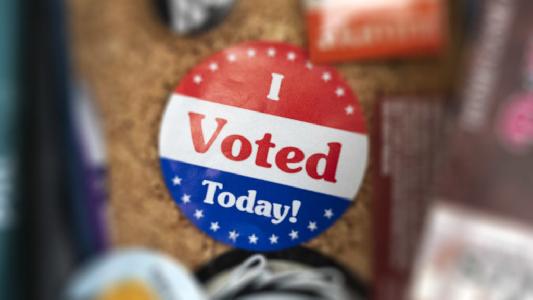As a student at Washington University in St. Louis, Jenny Fung was driven by an interest in better understanding climate change. She explored different types of environmental work early in her career that included lab work and activism. But she didn’t feel like her talents were being used in the right way.
She discovered geographic information systems (GIS) and was intrigued.
“I took a hard look at what things I had been exposed to and which I wanted to carry over,” she told Technical.ly. “With GIS, it’s the idea that you can look at data on a map and analyze it differently in a number of ways — I really liked it.”
After researching what jobs were available that were related to GIS and what types of organizations she wanted to work for, she learned about Azavea, the Callowhill-based geospatial software company that develops GIS and data projects with the City of Philadelphia, nonprofits and other clients. She applied for a position, and though it turned out to be beyond her qualifications at the time, she was pleasantly surprised to find that Azavea wanted her to apprentice, and would train her in the areas in which she needed more experience.
“[Azavea] is a small company at about 50 people and is human-centered,” she said. “If you’re applying for a job at a big company, I don’t know if you can make those [same] relationships. I’ve noticed the value of throwing my resume into the ether doesn’t seem productive to me.”
We're trying to look at people in the most human way possible.
Now approaching six years with Azavea, Fung works primarily as as a full-stack software engineer. She enjoys the flexibility that comes with working at a smaller company and her agency in doing things outside of her core skill set.
On an average day, Fund reviews code with her team and builds and maintains web and mobile-compatible geospatial web apps. (Check out her digital toolbox below.) Recently, she’s added internal people ops work, too.
“I pushed my way into getting involved in more administrative work and human resources [work] because I have more of a unique perspective,” she said. “It’s a work in progress, but I’ve been in efforts like starting a permanent DEI council that is integrating internally and changing some of the ways we do the hiring process. We’re trying to look at people in the most human way possible.”
In its acknowledgement that no candidate will perfectly meet the qualifications of a role, Fung said Azavea’s willingness to provide apprenticeships and training to new hires has expanded the reach of the professional opportunities it had available to a more diverse group of job candidates.
It echoes what former VP of Finance and Administration Karissa Justice told Technical.ly in December — that she predicts a significant shift in job qualifications during the pandemic and sees apprenticeships as solid ways for people entering the tech field to gain footing: “With fewer people choosing to go to college because of costs and many educational resources switching to free class, we will see a massive shift in qualifications during the pandemic,” Justice said. “If you want to recruit best people and retain them, you have to become more creative.”
As someone who switched industries to enter tech, Fung knew she wanted a fulfilling career, but she didn’t immediately understand what that could look like. By gaining more experience as a software engineer, she learned that the work was not beyond her. And, as a person of color, learning to give herself grace was something Fung recommended for other professionals who consider them outsiders in tech. Not being afraid to ask for help was something Fung learned could help her do even better work.
People want you to succeed as much as you want you to succeed and they are there to help you.
“Ask for your needs sooner,” she said. “If you have a question, ask it. People want you to succeed as much as you want you to succeed and they are there to help you. Every field is so wide and vast and everyone learns things to different speeds.”
Fung stays sharp on tech trends by continually learning and using self reflection as a tool to center herself. She frequently journals about how her day has gone, noting what worked well for her and what she would change about it. Reflecting on the mechanics of her job also gives her the space to appreciate her skill set and find ways to be an even better software engineer.
Fung — a former environmental biology major — does not believe that having a formal tech background via a college degree or even a bootcamp is essential in landing a job as a software engineer. Using an example of a colleague who was a string musician for an orchestra in their previous career, she said that the ability to collaborate and yield positive results is what matters most. Where you develop the technical expertise, less so.
“What you need is hard skills showing that you can write software,” she said. “Depending on the level of role, you need to show you can work with people successfully and that is not necessarily showcased by a resume.”
Learning to make the most of current opportunities has led Fung to her current role, where she combines coding skills with a human resource acumen that she showcases when conducting engineering interviews — something she never imagined herself doing in her past roles. Finding ways to enjoy the process has helped make her journey that much more fulfilling.
Here’s Fung’s tech stack:
- React/Redux
- Angular
- Typescript
- Webpack
- Yarn
- Leaflet
- OpenLayers
- Python
- Django
- Docker
- Vagrant
- Ansible
- PostGIS
- Amazon Web Services (AWS)
- Terraform, CI

This is How I Got Here, a series where we chart the career journeys of technologists. Want to tell your story? Get in touch.
Before you go...
Please consider supporting Technical.ly to keep our independent journalism strong. Unlike most business-focused media outlets, we don’t have a paywall. Instead, we count on your personal and organizational support.
3 ways to support our work:- Contribute to the Journalism Fund. Charitable giving ensures our information remains free and accessible for residents to discover workforce programs and entrepreneurship pathways. This includes philanthropic grants and individual tax-deductible donations from readers like you.
- Use our Preferred Partners. Our directory of vetted providers offers high-quality recommendations for services our readers need, and each referral supports our journalism.
- Use our services. If you need entrepreneurs and tech leaders to buy your services, are seeking technologists to hire or want more professionals to know about your ecosystem, Technical.ly has the biggest and most engaged audience in the mid-Atlantic. We help companies tell their stories and answer big questions to meet and serve our community.
Join our growing Slack community
Join 5,000 tech professionals and entrepreneurs in our community Slack today!






